International
Trump’s annexation threats return to Canada at the end of the 19th century
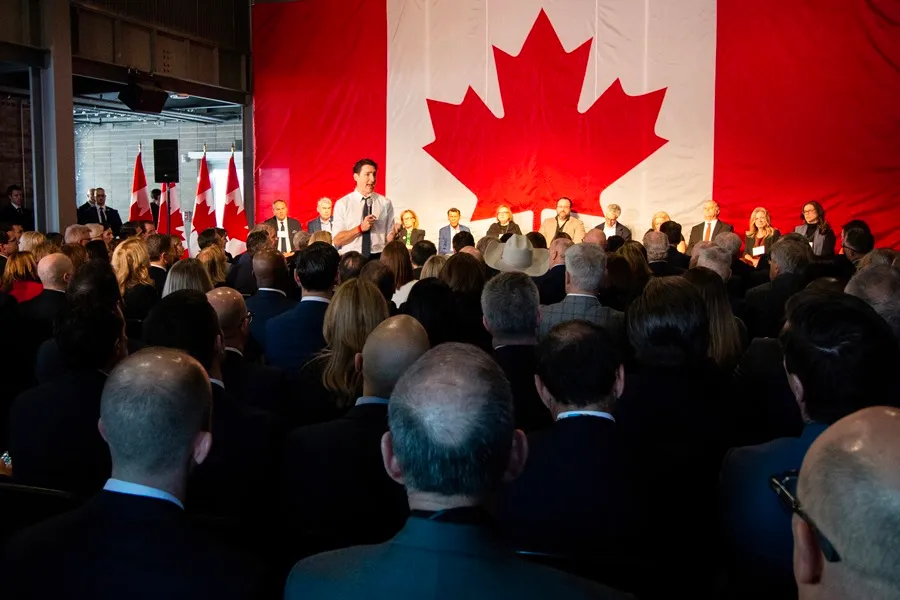
At the end of the 19th century, Canada was saved from being annexed by the United States thanks, in large part, to Spain. With Donald Trump in the White House, the threat is repeated and Canadians wonder what will happen now.
After winning the presidential election in November 2024, Trump made it clear that as soon as he reached the White House he would impose 25% tariffs on Canada.
Alarmed by the possibility of taxes that would devastate the Canadian economy, which allocates up to 70% of its exports to the neighboring country, Canadian Prime Minister Justin Trudeau traveled to Mar-a-Lago, Florida, to have dinner with the then president-elect and try to defuse the threat.
During that dinner in November 2024, Trump told Trudeau that if Canada wanted to avoid tariffs, the country would have to become the 51st state of the United States.
Since then, the Republican has repeated his interest in the annexation of Canada, even using “economic force” to bend his neighbor and ally.
The last time was last Thursday when in the Oval Office, Trump insinuated that Canada as a failed country, unable to defend itself against the threats of Russia or China.
“I think Canada is going to be a very serious candidate to be our 51st state,” Trump explained.
The idea of the US annexing Canada is not new. But for more than a century it had practically disappeared from Washington’s political vocabulary.
After snatching much of its territory from Mexico (from Texas to California) in the first half of the 19th century, in the second half, especially after the end of its civil war in 1865, the United States regularly repeated the idea of taking over the British colonies of North America, what today is Canada.
By then, the United Kingdom considered these colonies a political, economic and military burden. And in a quiet way he had practically decided that his defense was not worth it in case the United States decided to appropriate them.
Paradoxically, as Andrew Johnston, professor of History at Carleton University of Ottawa, pointed out to EFE, it was the American attempts to annex the British colonies that forced their unification in 1867 in the Canadian Confederation.
“The US’ desire to absorb Canada was what actually pushed the British Empire and the inhabitants here to organize themselves into independent colonies and later into an independent nation,” he explained.
The creation of Canada that year, and the expansion of the new country to the west (until 1871 the province of British Columbia was not incorporated into the Confederation), did not stop the American expansionist desires.
This required a change of mentality in Washington. And Spain.
As the authors Gwynne Dyer and Tina Viljoen point out in their book ‘The Defense of Canada’ by the late nineteenth century, the United States had become a more industrial country.
“The old impulse for territorial expansion was ceasing to be a central issue in American life and the new imperialism that soon replaced it was almost no threat to Canada: what Washington now wanted were overseas colonies as the European empires had,” the two authors point out.
So in April 1898, with William McKinley in the Presidency, the United States declared war on Spain and before the end of that year, Washington had its overseas possessions: Cuba, Puerto Rico, the Philippines and Guam.
Precisely McKinley is Trump’s idol, who has described him as “the king of tariffs”, for being the main driver of the legislation that at the end of the 19th century imposed tariffs of 50% on imports of goods into the United States.
That parallelism between Trump and McKinley does not escape Professor Johnston. “What Trump is expressing is something that I think has always been present in the minds of Americans, particularly after the revolution: that they have a historical mission,” he said.
But Johnston also believes that as in 1867, when the longings for annexation of the United States forced the creation of Canada, Trump’s threats will provoke another cathartic moment that has already begun with the renewed patriotism that the Canadian population has been demonstrating in recent months.
International
MPV Denounces Electoral Blockade as Secretary-General is Disqualified for May Elections
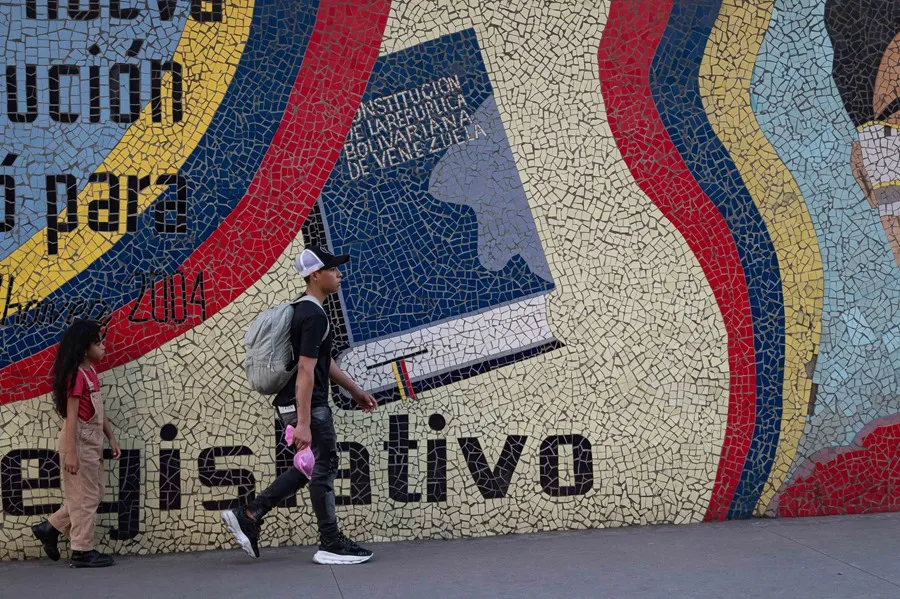
The anti-Chavista party Movement for Venezuela (MPV) denounced on Monday that it was “prevented” from submitting its candidates for the regional and legislative elections on May 25, elections rejected by opposition leaders Edmundo González Urrutia and María Corina Machado.
“MPV, being an active and recognized party in the National Electoral Council (CNE), was prevented from submitting candidates for the current electoral process,” stated the political group through a communiqué on X.
Additionally, the group denounced that its Secretary-General, Simón Calzadilla, was “suddenly disqualified,” as the opposition leader warned last Friday. He also explained that he attempted to access the CNE’s automated candidate submission system but, as he added, the portal showed that he was not authorized to create a user and submit the MPV candidates.
For the party, its “strong decision” to participate in the May elections “highlighted the true nature of this electoral process,” which it described as “extremely flawed.”
International
Maduro Plans Major Workers’ March on May 1st to Defend Venezuela’s Freedom
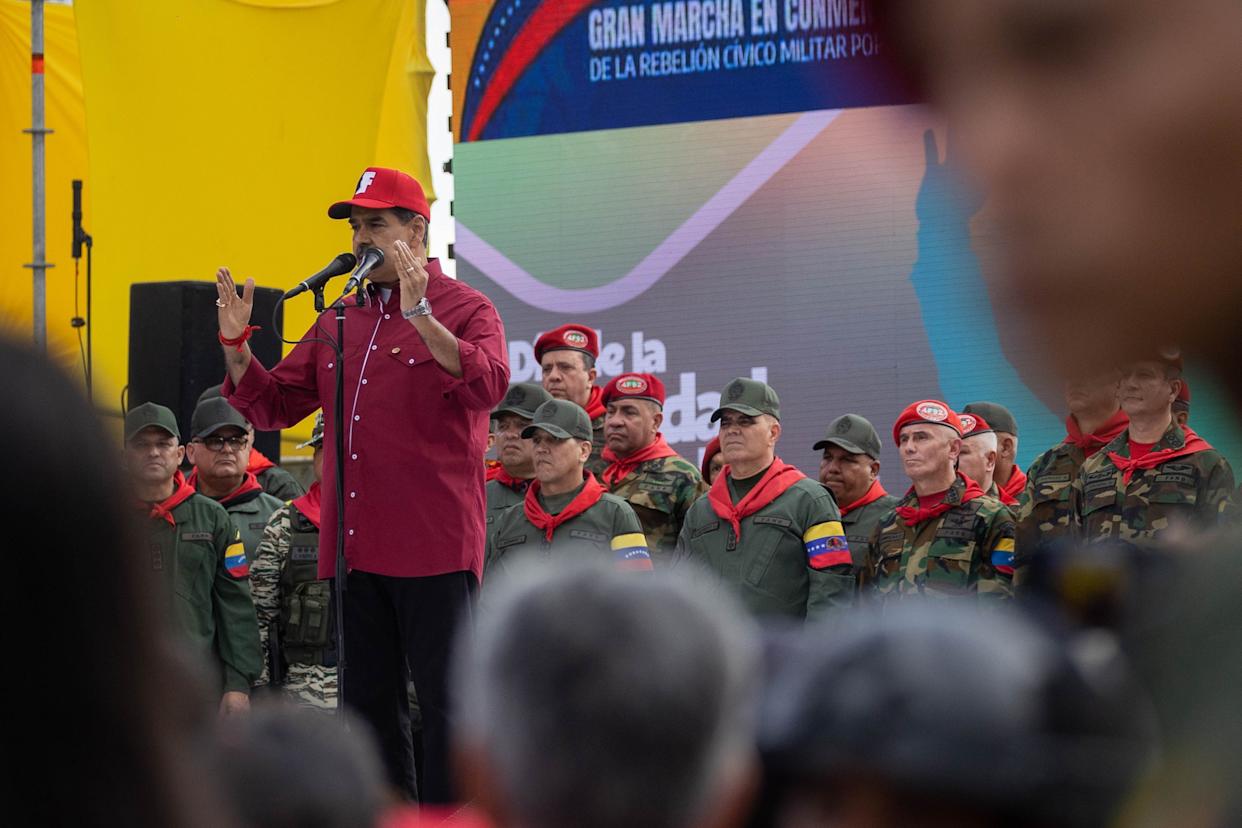
Nicolás Maduro, who swore in for a third term in January following his controversial re-election, called on Monday for the “working class” and the “armed people” to gather for a concentration on May 1st for peace, as part of the celebration of International Workers’ Day.
“Let’s have a powerful march of the working class, the combat bodies, and the Bolivarian National Militia in all the cities of the country, from end to end, working class and armed people in the streets shouting for peace,” said the chavista leader in a broadcast on the state channel Venezolana de Televisión (VTV), surrounded by military authorities.
He also stated that Venezuela is more armed than “ever” to “defend the sacred dream of a free homeland, the sacred soil of a heroic land, Venezuela.”
Maduro called on all military personnel to “stay in shape” with a “deployment capacity” and also to have “a very clear view of the entire national territory.”
International
Venezuela accuses Guyana of “warlike intentions” after UK defense deal
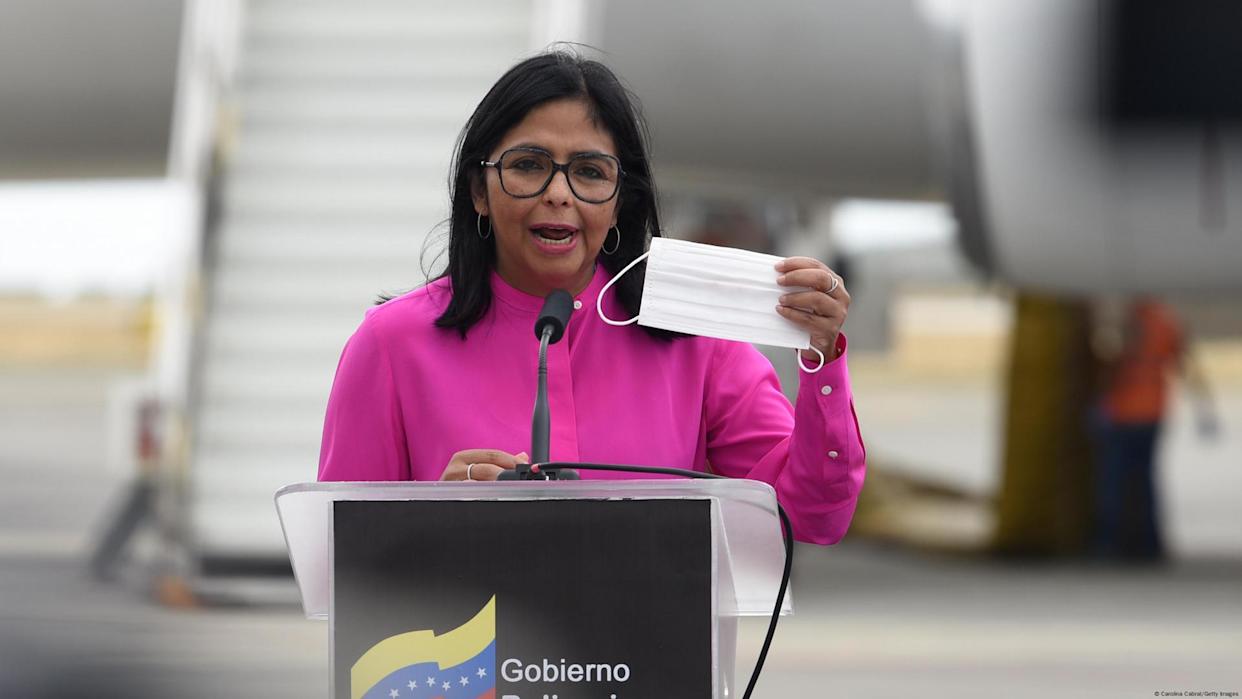
Venezuelan Vice President Delcy Rodríguez denounced what she called “warlike intentions” from Guyana on Saturday (April 12, 2025), following the signing of a Memorandum of Understanding (MoU) between Guyana and the United Kingdom aimed at strengthening bilateral defense cooperation.
“Guyana threatens Venezuela with its founding fathers. The UK and the U.S. are the architects behind the territorial dispossession of our Guayana Esequiba. These are the same actors who forged a fraudulent arbitration award in 1899 to strip Venezuela of its land,” Rodríguez stated via Telegram.
Rodríguez, who also serves as Venezuela’s Minister of Hydrocarbons, warned the region about “these drums of war, in clear violation of the CELAC declaration that recognizes Latin America and the Caribbean as a zone of peace.”
“Venezuela will stand firm in defending its legitimate rights, sovereignty, and territorial integrity in all scenarios,” she added.
-

 International4 days ago
International4 days agoDominican Republic mourns over 200 dead in Jet Set nightclub collapse
-

 Central America4 days ago
Central America4 days agoNicaragua seeks ICJ intervention in Gaza conflict amid escalating violations
-

 Central America4 days ago
Central America4 days agoU.S. Government says deported migrants should remain in El Salvador for life
-

 International4 days ago
International4 days agoTwo fans killed in gate collapse outside Chile’s Estadio Monumental
-
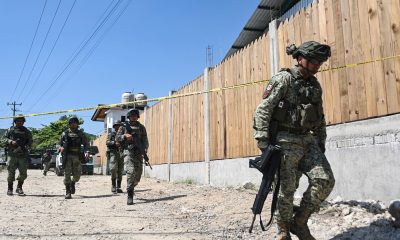
 International2 days ago
International2 days agoTrump Authorizes Military to Take Control of Federal Land Along U.S.-Mexico Border
-

 International4 days ago
International4 days agoItalian biologist found dead in Colombia; investigation underway
-
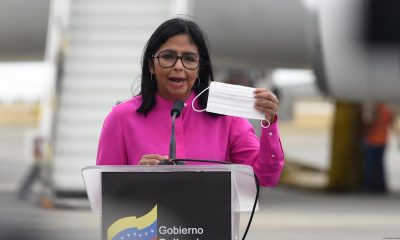
 International2 days ago
International2 days agoVenezuela accuses Guyana of “warlike intentions” after UK defense deal
-

 International2 days ago
International2 days agoNightclub Collapse in Dominican Republic Claims 226 Lives
-

 International4 days ago
International4 days agoMaduro signs Economic Emergency Decree to counter U.S. sanctions on Venezuela
-

 Central America2 days ago
Central America2 days agoSpanish Ex-Congresswoman Calls for ‘Bukele-Style’ Security Policies in Europe
-

 International4 days ago
International4 days agoVenezuelan oil shipments resume after tariff-induced delays
-
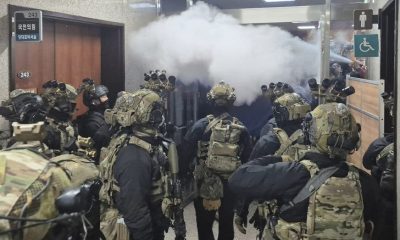
 International4 days ago
International4 days agoConstitutional Court Removes Yoon: Lee Jae-myung’s Rise Sparks Warnings of a Radical Shift
-

 Central America2 hours ago
Central America2 hours agoHonduran Police Offer $135K for Tips Leading to the Arrest of Romeo Vásquez
-

 International2 hours ago
International2 hours agoMaduro Plans Major Workers’ March on May 1st to Defend Venezuela’s Freedom
-

 International2 hours ago
International2 hours agoMPV Denounces Electoral Blockade as Secretary-General is Disqualified for May Elections















